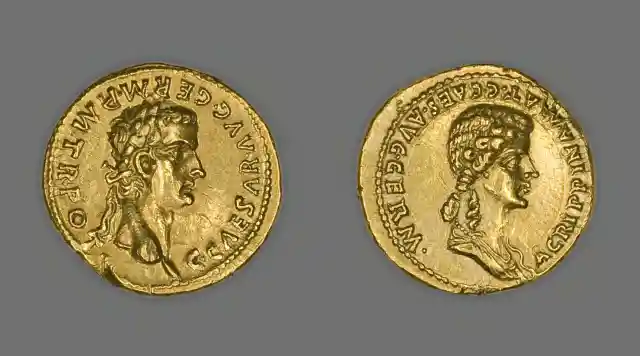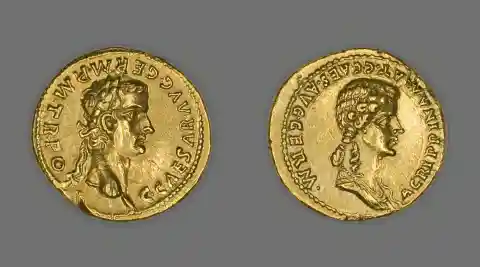1. Little Boots
Whenever Gaius's father took him on a campaign when he was a young boy, he would get dressed in a child-sized soldier's uniform. Because of this, the soldiers began referring to him as Caligula, which translates to "little boots." It's unclear if the men wanted it as a compliment or a loving teasing joke, but Caligula seemed to hate the nickname. He had a huge frustration growing up, and as he grew older, it only got worse.
Born Gaius Julius Caesar Augustus Germanicus in 12 AD, Caligula ruled Rome as Emperor from 37 to 41 AD. His insecure and ruthless nature left Rome in a chaotic condition and ultimately led to his bloody funeral. Make sure you read the article till the end to understand why exactly he thought he was God!
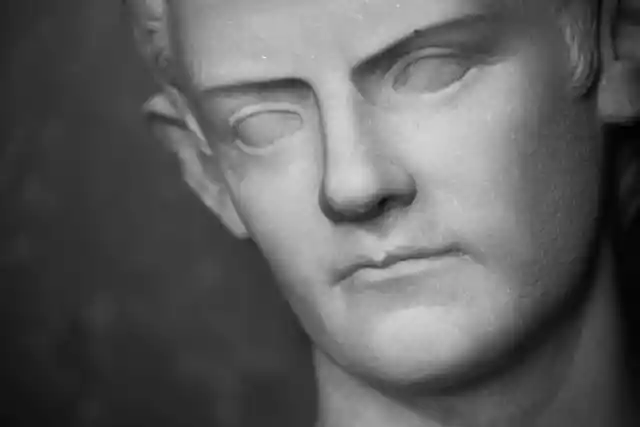
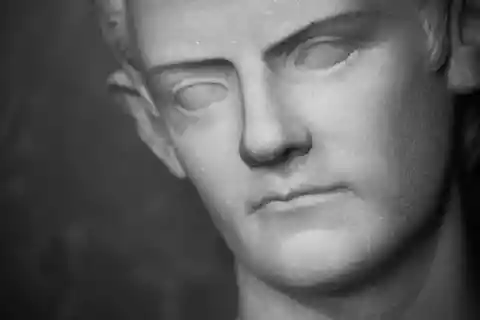
2. Making Enemies Wherever He Goes
He is remembered as a harsh and unpredictable dictator. The real emperor was more terrifying than the one we saw on screen, even though the majority of people are most familiar with him from the offensive 1979 explicit film Caligula.
Nobody would challenge Caligula because he was the emperor and was said to have an enormous appetite in bed. According to researchers in history, he had sex with the wives of his officials and then declared about it in public.
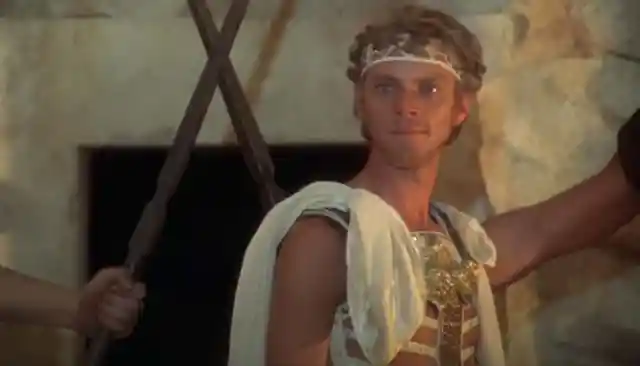
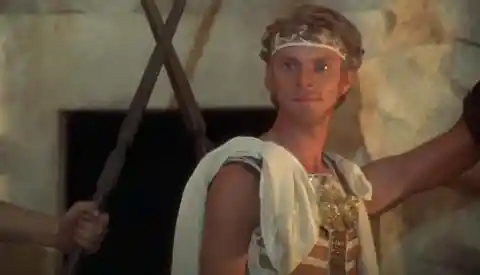
3. Of Little Worth
Even though different historians have given different accounts of Caligula, they have all agreed on one unpleasant fact: this insane emperor did not value human life at all. According to a bizarre legend, Caligula was supposed to hit a bull over the head with a large baseball bat to sacrifice it to the gods. Caligula thought of a worse plan at the last minute and instead assaulted the priest.
Then, as the priest was dying, he laughed at him. This is just the start of his evil activities; he's not the kind of man you want in a position of authority because of what he did next.
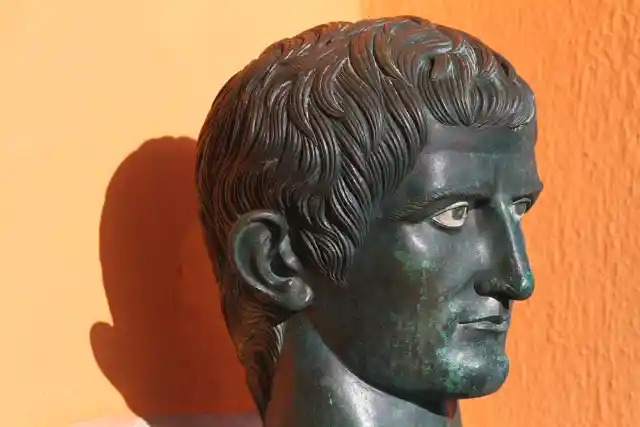
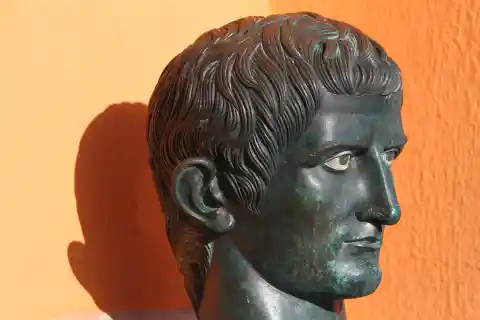
4. Tough Mommy
Agrippina the Elder, Caligula's mother, was a renowned tough and courageous woman, as opposed to her arrogant son. As his advisor, she accompanied her father, the adored general Germanicus, on his military campaigns. The fact that she wanted to be the mother of emperors was well known in Rome, but she chose the wrong partner; she would never get the chance to see her dream fulfilled.
Agrippina publicly and frequently voiced her disapproval of Emperor Tiberius, the father of her son. It should come as no surprise that insulting the world's most powerful person had devastating consequences. She eventually refused to eat and grew weaker after Emperor Tiberius exiled her.
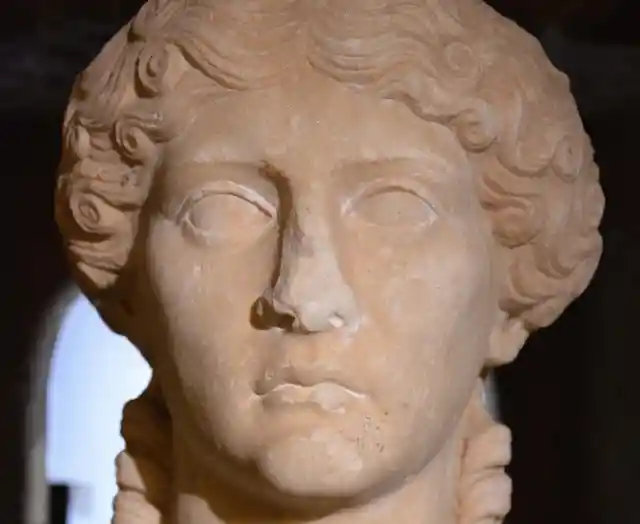
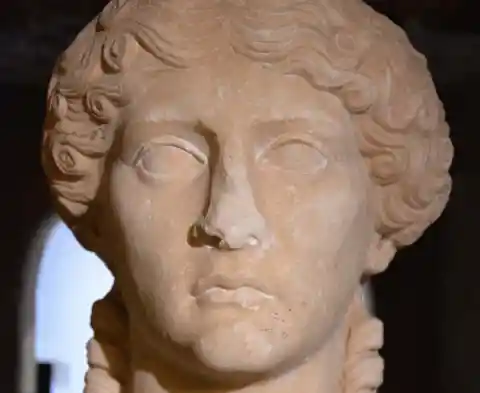
5. Sisterly Love
For the 1979 film's romanticism, we can thank Suetonius, the Roman historian. Suetonius claims that Caligula had a keen interest in the Egyptian custom of sexual misconduct as a means of preserving the throne of Egypt. In an attempt to successfully preserve his royal blood, the emperor made the same decision and started intimate affairs with all three of his sisters.
It should be noted that Suetonius wrote The Twelve Caesars eighty years after Caligula was killed. Additionally, Suetonius might put in excessive since Caligula's sexual behavior is not mentioned in any of the earlier chronicles. If you thought the rumors about Caligula were frightening, wait until you hear the alarming facts we have proof of.


6. A New Level of Excess
Caligula was a gold-loving emperor, as befitted such a person. There are even stories that claim he took a cue from Scrooge McDuck and swam through the gold coins like water.
If that wasn't enough, there are more weird stories that will surely make you go- “What was the matter with him?” There are stories about him where he randomly scatters gold coins all over the ground and walks on them with his shoes off.


7. Cleopatra’s Cocktail
A luxurious and completely repulsive cocktail was described in Pliny's account of Cleopatra. It seems that the Egyptian Queen drank vinegar after melting a pearl earring in it. It is also said that Caligula loved these lavish drinks, demonstrating his never-ending desire to be the most happy of all. Not only that, but he also had golden loaves of bread on his dinner table.
How, then, did he defend this silly overkill? He once said, "You had to be thrifty or you had to be Caesar." Fortunately, he fits both of these descriptions.
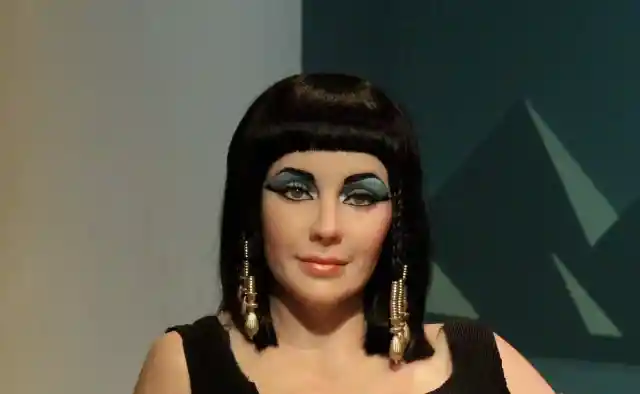
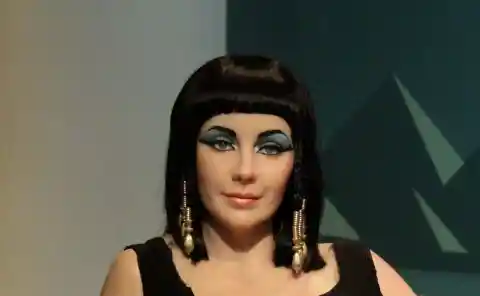
8. Distinguished Line
A defined line of Roman leaders followed Caligula. His grandfather was Augustus, his father Germanicus was one of Rome's most liked and successful generals, and his great-great-grandfather was Julius Caesar.
Whoever in their family would become the king they were well known for their methods to bring justice and even people praised them. Everyone was very happy but who knew this happiness would not last forever. Magnificent men everywhere you looked, but Caligula was born different. You see, the apple, sometimes, can fall very very far away from its tree.
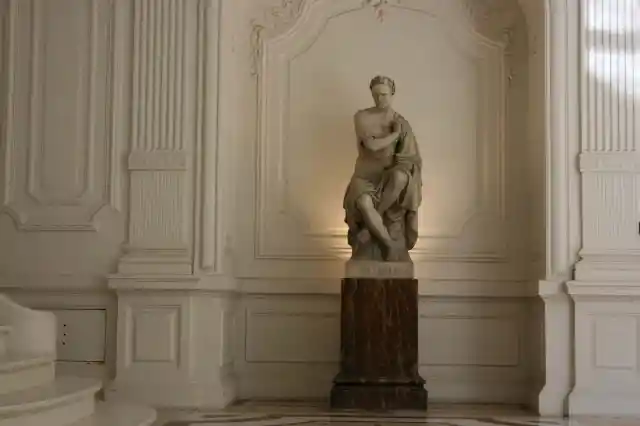
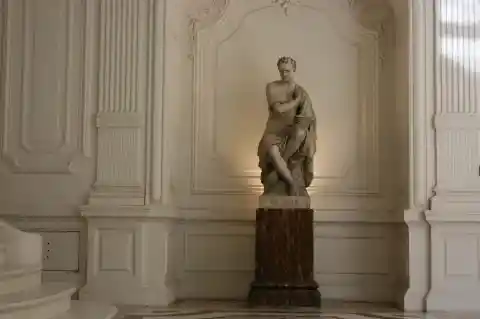
9. Living God
Caligula built a temple in his honor and stored a life-size golden statue of himself there while he was still living. The wealthiest residents of Rome would present gifts to the emperor at that location every day while the statue was clothed in whatever garment he happened to be wearing.
Flamingos, peacocks, along other exotic animals that the Romans loved were among the gifts. Despite not ever being a kind god, Caligula believed he was a god.


10. Succession
While emperor Augustus lay approaching death, Caligula was born. Tiberius was designated as the successor by the first Roman emperor but only under one very particular circumstance. Who knew if this situation would change the whole scenario of Rome?
Germanicus, the father of Caligula, was greatly admired by Augustus, who also forced Tiberius to make a promise that the great general would be his son. Tiberius accepted and Augustus passed away without realizing that his carefully thought-out schemes would come crashing down.
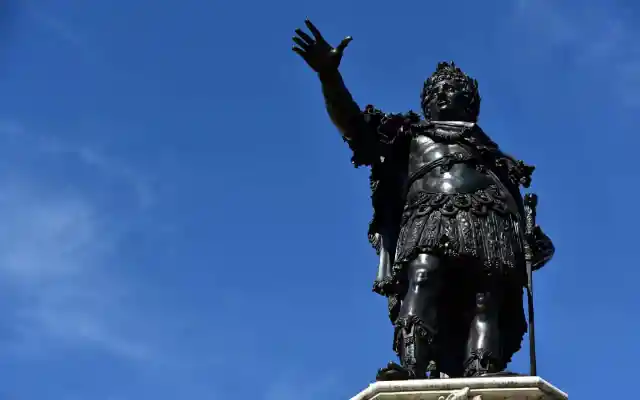
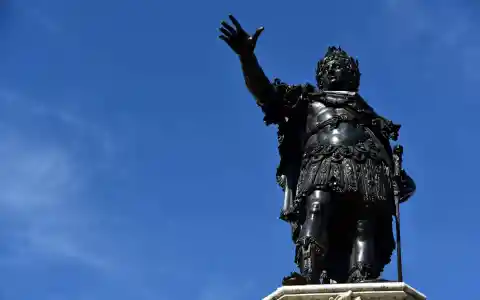
11. New Plans
Germanicus was sent on an official trip by Tiberius as one of his first acts as emperor; while there, the general mysteriously fell ill and passed away. The sudden death of a king was not a common thing. This incident shocked the public of Rome.
However, this was ancient Rome and powerful people rarely died for no apparent reason; tales of Tiberius being responsible for Germanicus's loss quickly gained interest. Roman society's upper classes broke out in conflict, and the results were horrifying.
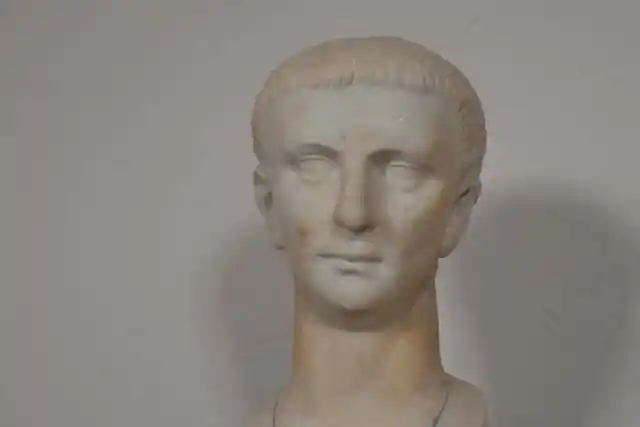
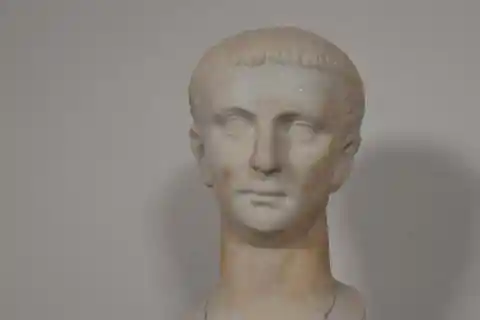
12. Family Intrigue
The death of a young Caligula's father at such an early age was unbearable for him. His mother wanted justice after blaming Tiberius for killing Germanicus. Tiberius took charge and declared conspiracy against her and Caligula's two elder brothers. Tiberius had the two brothers imprisoned, and Agrippina passed away from starvation while living in exile on an isolated island. Both of them passed away—one from suicide, the other from starvation.
Caligula's whole family was under the earth in a matter of seconds. Tiberius left Caligula because he was still a small child during all of this calamity. He was sent to be raised with his great-grandmother Livia by the emperor.
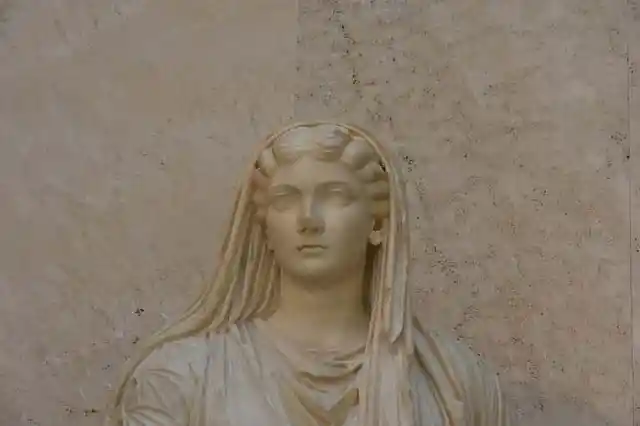
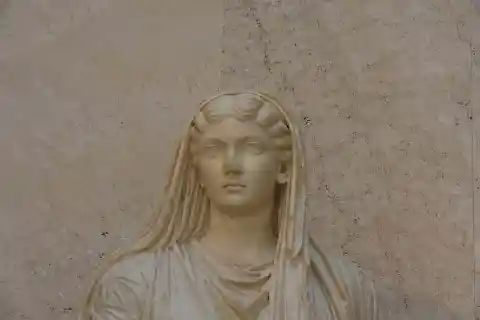
13. The Boy Who Lived
Caligula and his mother were left alone after the death of Germanicus. This would be the right time for Tiberius to take the revenge. You're not alone if you find it odd that Tiberius would allow Caligula to survive after killing practically his whole family.
People were expecting that Tiberius might take the revenge of this brother’s death but he didn’t. The emperor's act of kindness towards the boy shocked a lot of people in Rome. But maybe this act of Tiberius would pay him hard later.
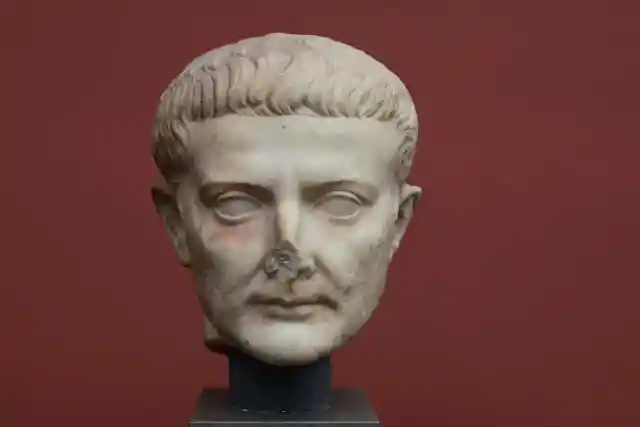
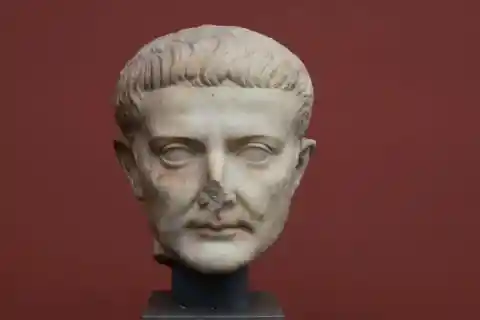
14. Path to Power
Caligula's great-grandmother Livia protected him from politics for the majority of his childhood, but an unexpected tragedy transformed everything. Until he was with his granny, he was safe. Suddenly something happened that no one had even thought of.
A rival politician may have caused the death of Tiberius's son. Or else Tiberius found himself without a successor. He brought Caligula to his vacation island of Capri in AD 31 and took the boy in as his own.
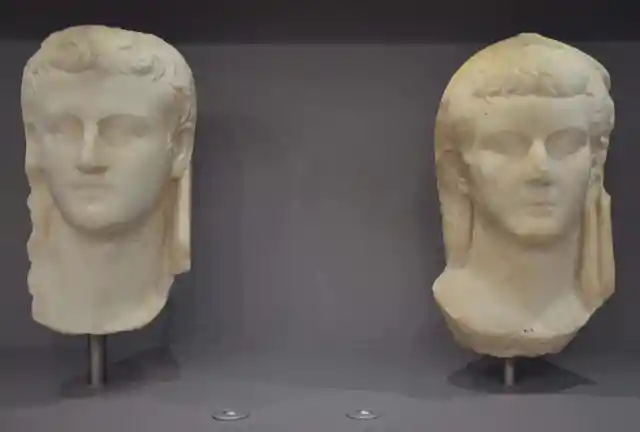
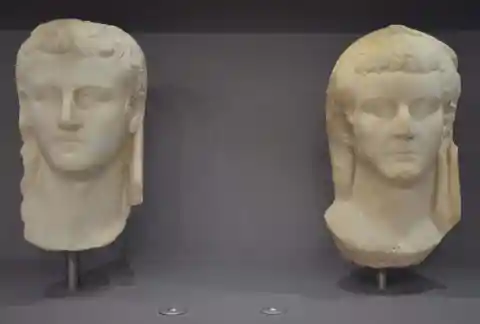
15. Kept in a Gilded Cage
Although Tiberius allowed Caligula and his sisters to live with him, it does not mean that he furnished them with luxurious bedrooms. He has done thing much for those people, that was more than enough. Who would spare them after what they did with Tiberius? But he was kind to them.
Suetonius claimed that the few living Julii were nothing more than slaves, always watched over by Tiberius's men. They wanted Tiberius to not spy on them and wanted that luxurious life that they were living.
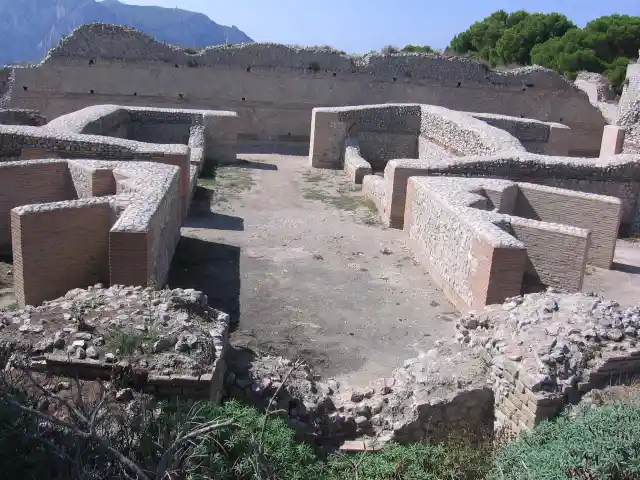
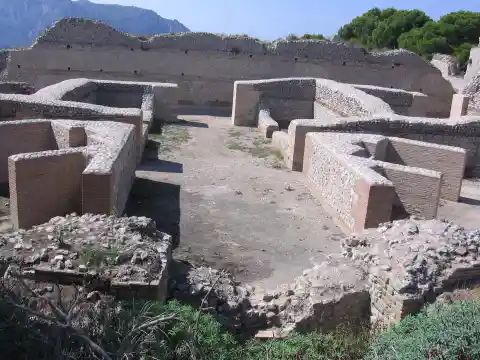
16. It's so Simple!
Even though Tiberius killed most of Caligula's family, the young man wasn't going to turn down the emperor's offer to become his successor! In Tiberius' will, Caligula was named co-heir with his younger cousin Tiberius Gemellus. This was something that wasn’t acceptable.
However, the Senate disapproved of these names and granted Caligula full royal authority, allowing him to name Gemellus as his chosen successor instead of Caligula. Yes, politics, is the art of making things as difficult as possible for generations. The bad games of politics started from here itself.
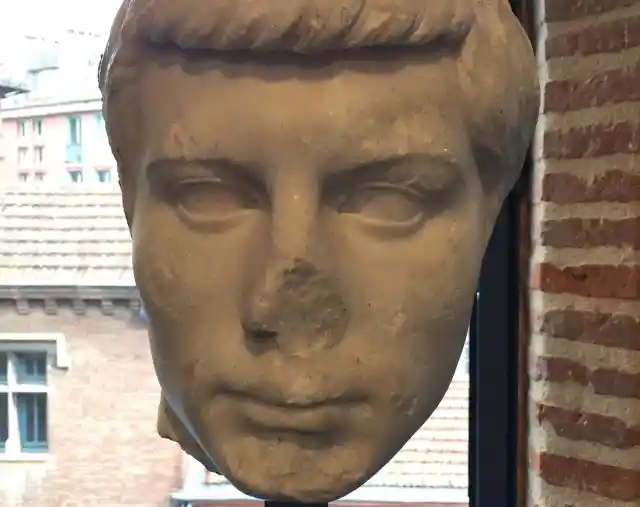
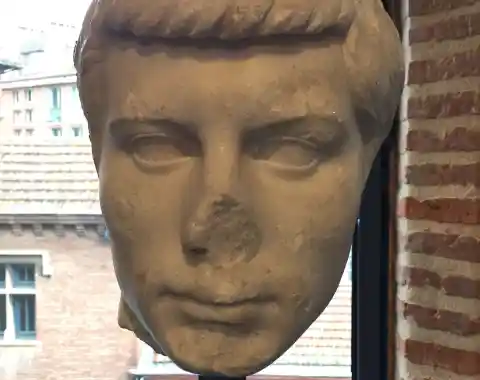
17. He Hid His Hatred
Caligula hated Tiberius for what he did, as you can imagine. Why, then, did the emperor choose Caligula to be his successor? Modern reports state that Caligula was a talented actor who, at least in his youth, buried all of his negative emotions.
There was never a worse master or better servant than him, according to one writer, who observed how well he served Tiberius. The story gets more interesting from here. The writer is opening the doors of secrets and surprises that were hidden.


18. Nursing a Viper
Caligula had a natural evil even before he was made Emperor. Not only did he enjoy watching murders and engage in shameful behavior at night, but even worse, Tiberius named him knowing full well the nature of the man who would succeed him.
The elderly emperor remarked, "I am nursing a viper in Rome's bosom," as Caligula grew increasingly insane. He had yet to learn about half of it. Looking at the growing madness of Caligula it was going to be difficult for the people of Rome to survive.

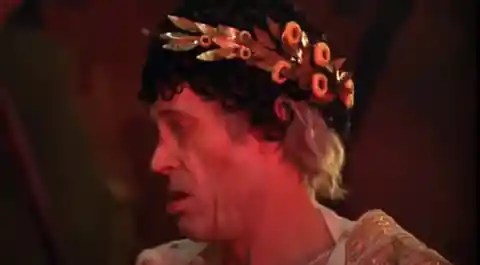
19. Intended Patricide
Caligula was a heartless person from the beginning. He frequently declared that he had killed Emperor Tiberius to take revenge on his mother and brothers by escaping a sword into their bedroom. He had a change of heart and left the room when he saw Tiberius asleep, but he still felt that people needed to know that he was capable of doing it.
This is so annoying. Just for the sake of showing his manly nature, he declared officially in front of the whole public. Have you ever wondered what could be the reason behind this show-off? Caligula has started his evil deeds and as you keep reading you will find the evidence of his madness.

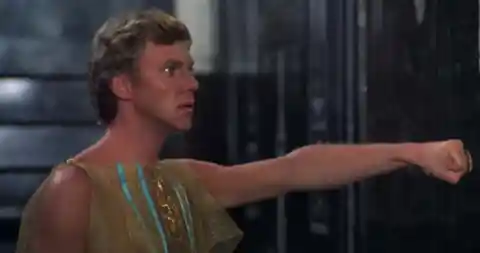
20. The Heartbreak Didn't Stop
Caligula tied the knot with a woman named Junia Claudilla, and within no time she became pregnant. The unstable Caligula might have calmed down a bit in the presence of a loving family, but tragedy quickly tore his new family apart.
A year after their marriage, something unexpected happened in his life. Junia, Caligula’s partner passed away giving birth, leaving Caligula by herself once more. He was alone at that time. But wait, will this tragedy change his nature or make him more cruel?
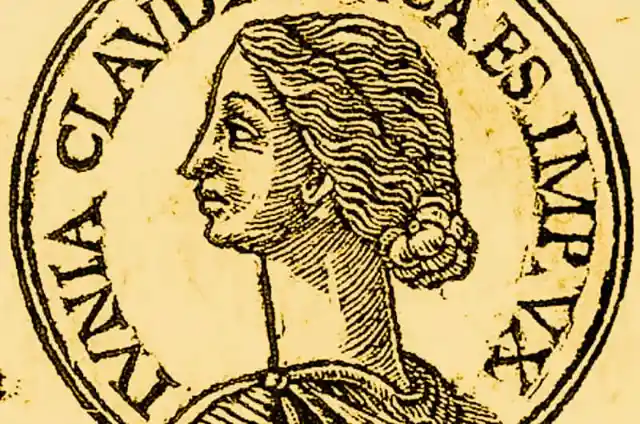
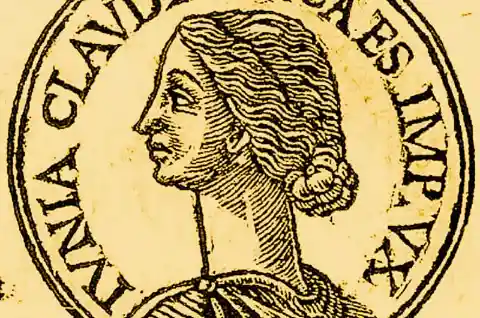
21. Friends in High Places
Caligula made friends with Naevius Sutorius Macro, the commander of the enormous Praetorian guard while residing as Tiberius's "guest." Even though Macro would later come to regret ever meeting Little Boots, his kind words managed to soften Tiberius's attitude towards the young Caligula.
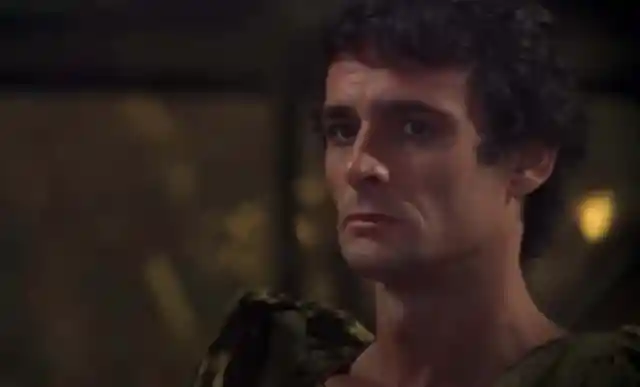

22. Anything for Caligula
Suetonius proposed a more evil end for Tiberius, but one historian Tacitus claimed that Macro overwhelmed the dying Tiberius with a pillow to ensure Caligula took the crown. This was going crazy in Rome and no one knew about all this.
Is this the right way to get the crown of the emperor? Sometimes I feel like this was all a part of Caligula’s planning to become the king. Tiberius didn't kill Caligula because he wanted him to become his successor but who knew that this man was going to be the reason for his death?
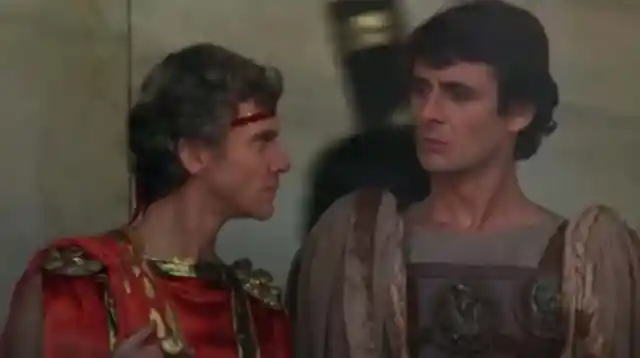
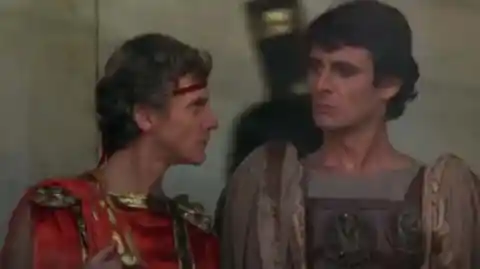
23. Tyrannicide
Suetonius claimed that Tiberius's life was ended by Caligula, who also secured Tiberius's rising to the throne. Rome rose as Caligula took the throne the exact events of that terrible day remain unknown.
Imagine it in a way that a new person took charge of Rome and the people of Rome witnessed the big change made by their new king. But these changes are all part of a secret plan. Here the historians left us at a curious turn, making us know more about that day.
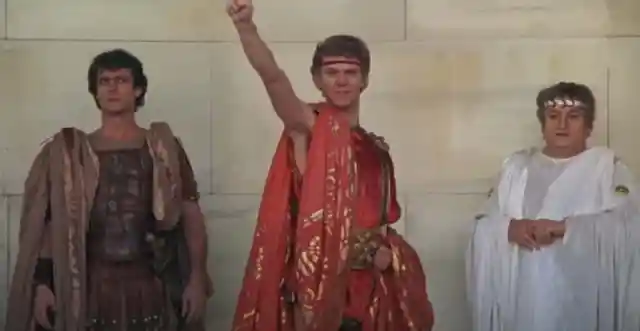
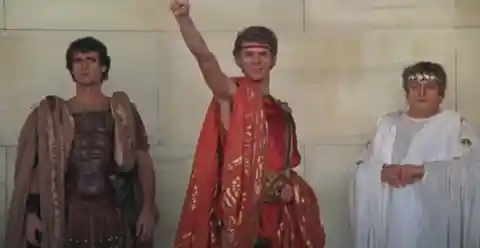
24. Careful What You Wish For
Tiberius allowed Rome to fall apart during the last years of his power while he relaxed around his Capri pleasure palace. As a result, by the time of his death, the people of Rome opposed him greatly. Thus the Romans celebrated the election of Caligula to the throne.
If only people in the Empire had known what was about to happen, one writer claimed that he was the first emperor that they all respected. Here's a catch! The emperor gets full respect from his people, holds an evil mind, and is ready to play it with the people of Rome.
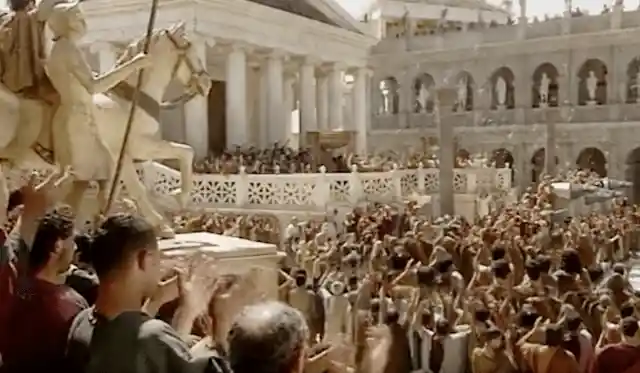
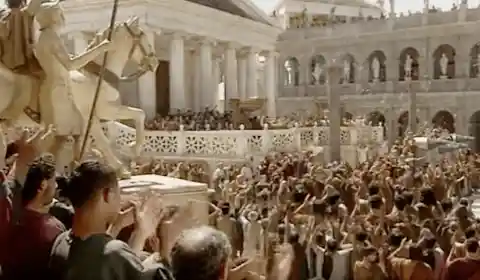
25. Strengthening His Position
When Caligula became emperor, he made every effort to win over the public. He gave an energetic and tearful speech at Tiberius's funeral, honoring the late emperor with a lavish burial. History says that Caligula was a skilled crowd-pleaser.
Despite his deep hatred for the man who killed his family, he made good use of these powers on the day of his predecessor's funeral. Can you imagine a revenge like this? What powers he must have used at the time of the funeral? The writer has left us with an unexpected twist.


26. A Bloody Celebration
The excited populace began offering numerous animal sacrifices in honor of Caligula's coronation since it was the only way they knew how to pay tribute to the victory.
Over 160,000 animals were sacrificed by the Romans in the first three months of Caligula's reign, according to Suetonius. That was a great number. But was that the correct way to pay tribute to the victory? This could be done by offering flowers or organizing an event that would have shown their victory very well.
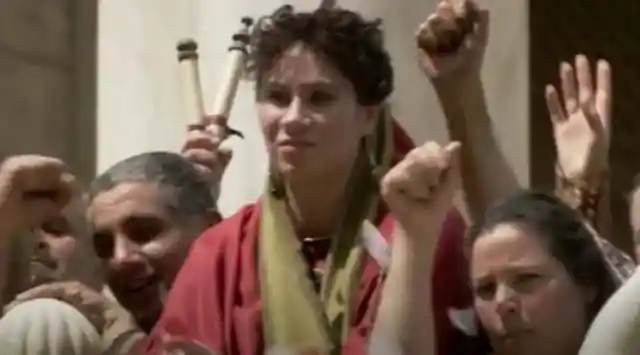

27. A Promising Start
People in Rome held great expectations for Caligula's reign. After all, he originated from an amazing family history; many could relate to the dreadful dreams he experienced growing up. And, shockingly enough, he initially lived up to their highest expectations.
He removed a very unpopular tax, awarded bonuses to military personnel, and set free citizens who had been wrongfully imprisoned. Those initial months were characterized as "blissful" by the Roman historian Philo, but the happiness was short-lived.


28. I'll Show You
Caligula's craziness quickly started to show in his behavior. To reject one of his deniers, he chose early in his rule to spend thousands of dollars building a hanging bridge across the Bay of Naples. The astrologer Thrasyllus forecast that Caligula "had no more the potential of becoming the ruler than of riding a horse across the Gulf of Baiae" before his rise to the throne.
In an attempt to prove wrong the man, Caligula went to extreme measures. It was said to extend three miles over the Bay and included multiple rest areas with water for drinking along the way. The bridge was constructed on multiple floating pontoons.
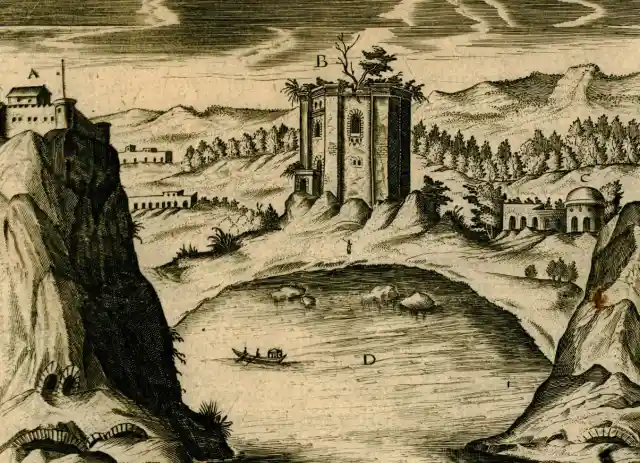
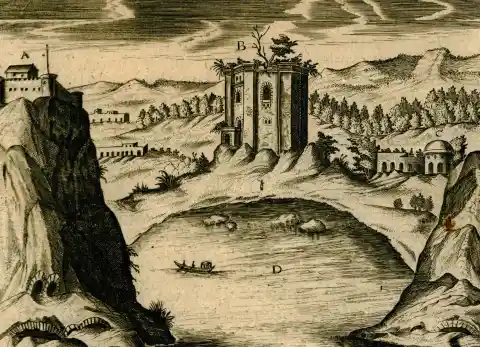
29. Bridge over Trouble Water
After building his magnificent (and useless) bridge, Caligula is said to have put on Alexander the Great's breastplate, wrapped himself in a gold mask, and enjoyed riding across the bridge to finally reveal Thrasyllus.
Yes, he abused a vast amount of public funds, but whatever, Thrassy was most likely angry. People were stubborn after this they all were shocked. Even Thrassy was very upset but for Caligula, this wasn’t a big deal. This makes us wonder what would be the next plan of Caligula after this.
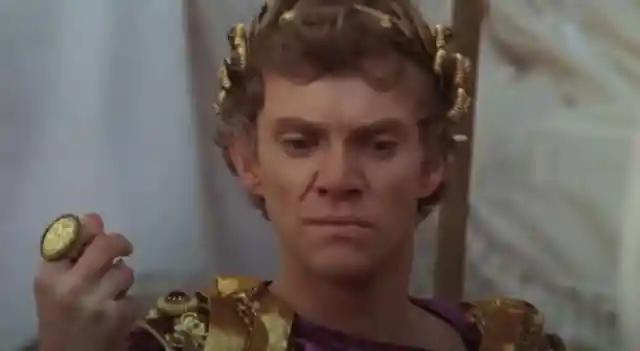
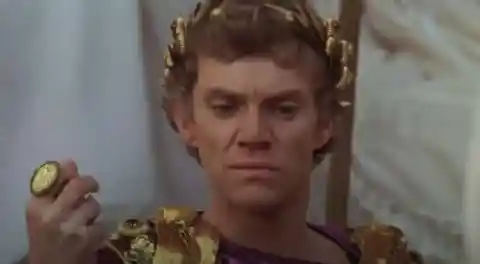
30. The Mad Emperor
After assuming power for about six or seven months, Caligula suddenly became ill—possibly from poisoning. Rome shook as a result of his recovery, but by all accounts, the terrible illness broke something in his mind. He started the process of murdering his relatives, starting with Gemellus, his cousin and his successor.
His grandma also passed away soon after, and she was very upset with him. While some said it was suicide, others said he had poisoned her. In addition, he had his two surviving sisters removed and his father-in-law and brother-in-law put to death.


31. The Last Laugh
Caligula had almost all of his close relatives put to death in the gloomy days that followed his illness that almost claimed his life. His weak uncle Claudius was one of the few people Caligula left his anger for; he was kept around as a joke source.
Not that the insane emperor knew it, but Emperor Claudius would soon be dancing on his tomb. Don’t think that he didn't kill his uncle because he might have a soft corner for him. No, rather something might be cooking in his head for the death of Claudius.
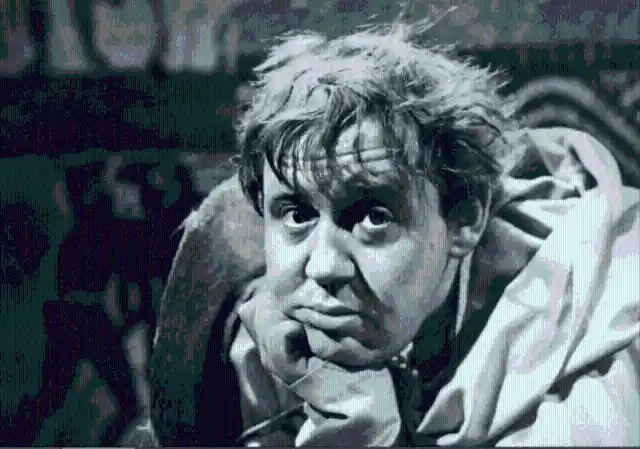
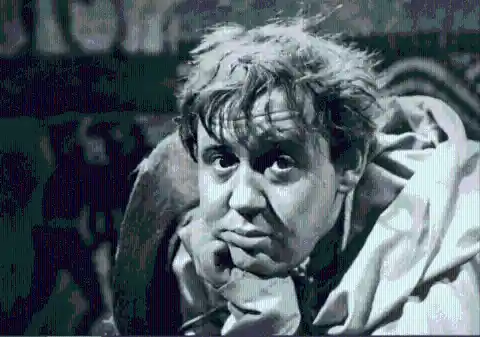
32. Dark Rumors
Caligula's famous family contributed to his enormous following, but the man had mixed feelings about it. Caligula was a bitter man, perhaps because he felt his fame reflected him or because he simply disliked having his name called into question.
He even declared that Augustus, his grandfather, and Julia the Elder, his daughter, were involved in a sexual affair.
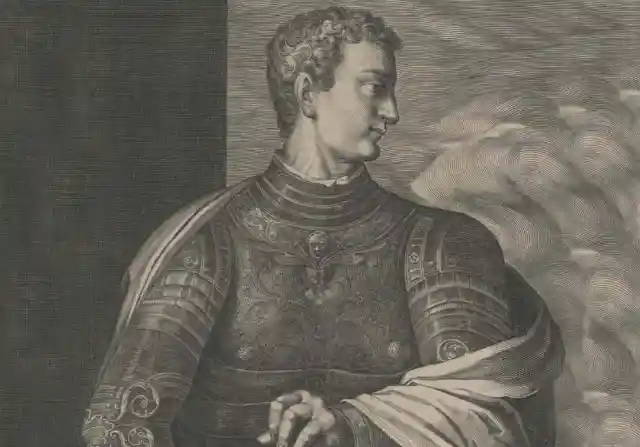
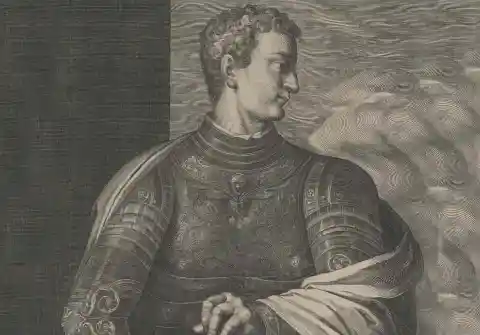
33. Swing the Vote
Recovering democratic elections was one of Caligula's first acts as emperor, despite his reputation as a crude dictator. Not that he gave a damn what elected officials said, though.
After reading about Caligula can you imagine him being so fair enough with his people? This shows that he wanted to show of elections but he is not at all interested in it. He just wants to highlight that he cares for his people and wants to be fair with them. He is not.


34. He Delivered Caligula the Thone—And Paid the Ultimate Price
Recall Macro, the member of the Praetorian Guard who supported Caligula's being crowned. It appears that everyone was exposed to the irregular mood swings of Caligula. Macro tried to maintain his career by engaging in some political actions when it appeared that Caligula might pass away from illness.
Upon his recovery, Caligula learned of Macro's schemes and sentenced his earlier friend to a horrific end. Macro, to whom he paid so much, was forced to take his own life by Caligula. How cruel he is. For him taking life of people is a funny task.
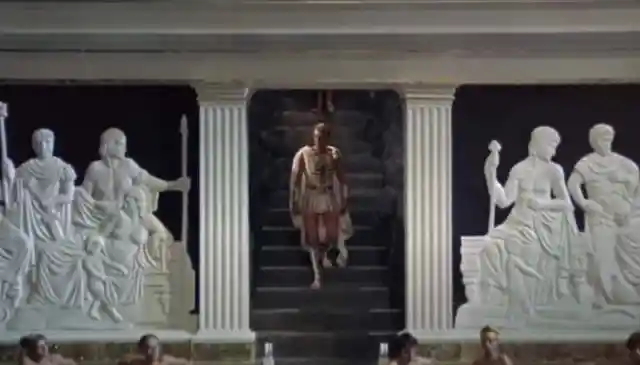
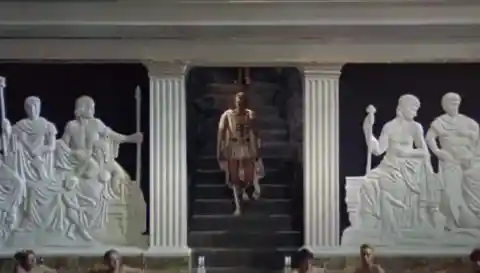
35. Show Me the Money
Even though Caligula's first years in office were filled with ups and downs, almost everything he did was costly. Rome quickly ran out of money, whether from cutting taxes or acquiring lavish lifestyles for himself. Thus, now that he had complete power, Caligula found new means of raising money.
One of his favorite things to do was to charge someone with murder or another crime and then have them punished, put in jail, or even put to death. Naturally, he was then free to take all of their money and belongings.


36. Chilling Fundraisers
Unfortunately, blaming people intentionally and stealing their belongings didn't bring in nearly enough money to cover Caligula's debts; instead, he was forced to turn to even more absurd means of payment. He forged legal documents and imposed new taxes to claim property donated to Tiberius.
However, his smartest attempt to become wealthy quickly occurred at the gladiatorial arena, one of his favorite places to hang out. Gladiator lives were being passed off by Caligula at live events; tell me how you want him to die and we'll see to it but at a cost.
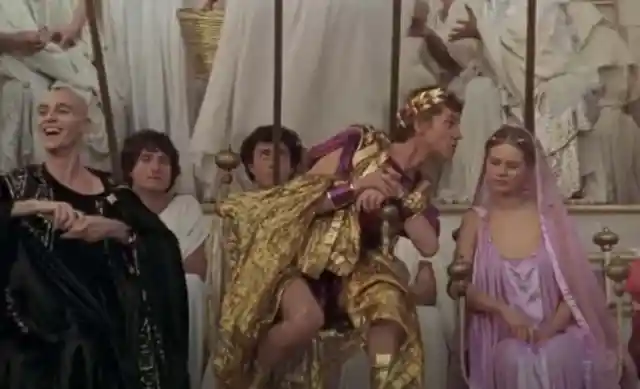
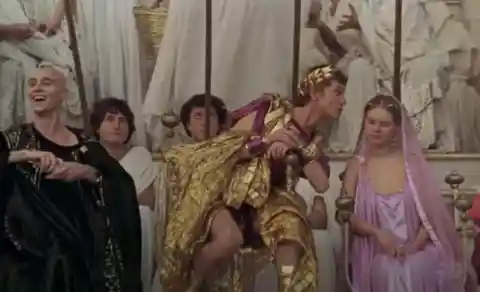
37. Jealous for the Wrong Reasons
Suetonius claims that in the first year of his presidency, Caligula took 2.7 billion sesterces. You would think that this would make him a historical irony, but our viewpoint is not shared by everyone. Regarding Caligula's expenditure patterns, his ancestor Emperor Nero had mixed feelings.
On the one hand, he was impressed by the amount of money Caligula was able to spend, and on the other, he was jealous that he hadn't passed on such a large nest egg. It is like a roller coaster of emotions.
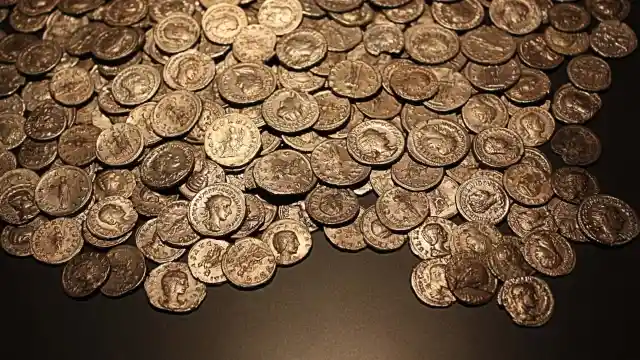
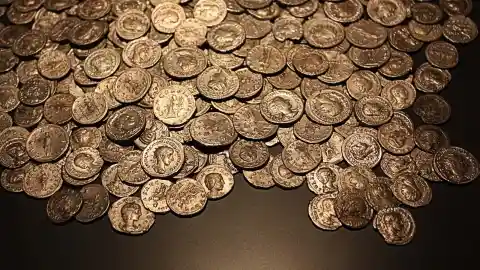
38. In the Jaws of the Lion
Mauretania was an overseas kingdom of the Roman Empire when Caligula succeeded to the throne in North Africa. Despite not being a part of the Empire, they were independent and paid tribute to Rome. After Caligula entered the picture, everything quickly changed.
The entrance of Caligula was a life-changing moment for the people of Rome. Everyone respected him. People were expecting him to be a good and nice king as his ancestors were. But who knows when the time will take a flip and all went upside down.


39. It's a Trap
Ptolemy, the king of Mauretania, was invited to Rome by Caligula. Ptolemy agreed since he didn't want to upset the emperor but would never again see his native country. Caligula included Mauretania and put Ptolemy to death without a trial not long after he arrived in Rome. At that exact moment.
Poor Ptolemy didn't know that this invitation would be his last day on this earth. This wicked Caligula is not only the worst king but also lacks humanity. He has no soft corner for anyone. The next step of Caligula could be more dreadful.
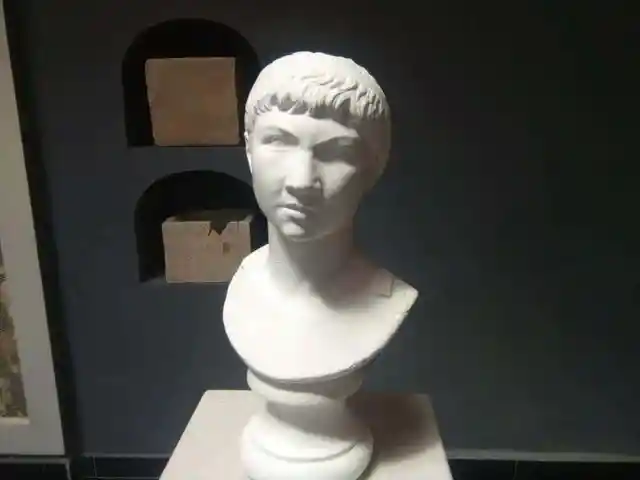
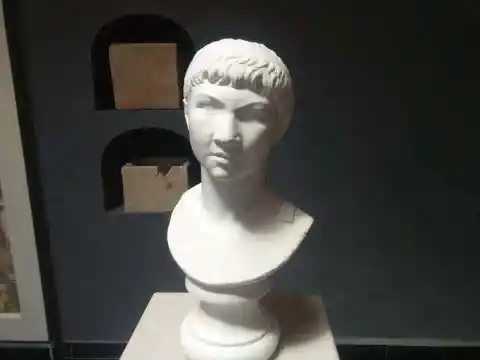
40. Heads Will Roll
Not only did Caligula consider himself to be a god, but he also felt dissatisfaction towards the real gods for sharing worship with him! He had statues of different gods taken down from all over Rome, and he had his portrait placed in their places since I'm sure that fooled everyone.
It’s like he wanted everyone to worship him in place of anyone else. He had portrayed himself in place of god. This made us wonder about his ego and what the people of Rome thought after replacing their god with the face of Caligula.
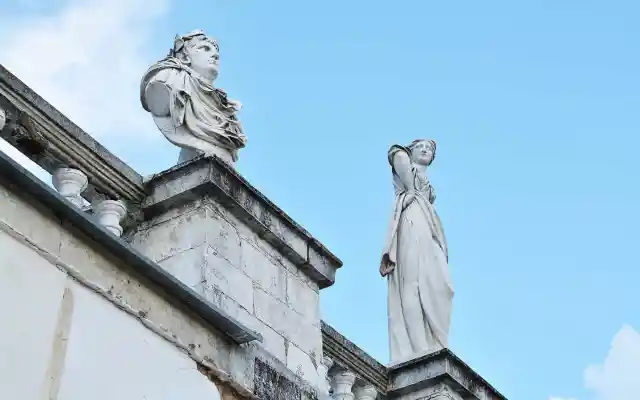
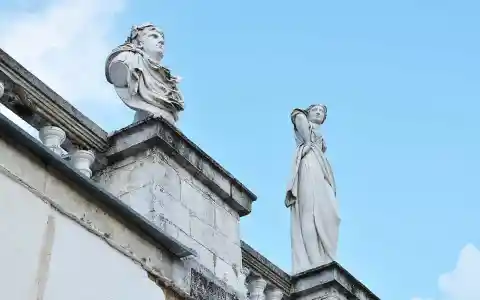
41. There's Nothing in the Rulebook That Says A Horse Can't Be Consul
Even though Caligula was a complete demon when it came to his relations with people, that doesn't mean he ignored all other living things: he was so fond of his horse Incitatus that he gave him a home complete with an animal ivory manger and a marble stall.
As a further demonstration of his absolute authority, Caligula even aimed to install the horse as a diplomat but he passed away before he could do so. That’s intresting to know that he likes horses and even further on reading, you’ll know his dedication to horses.
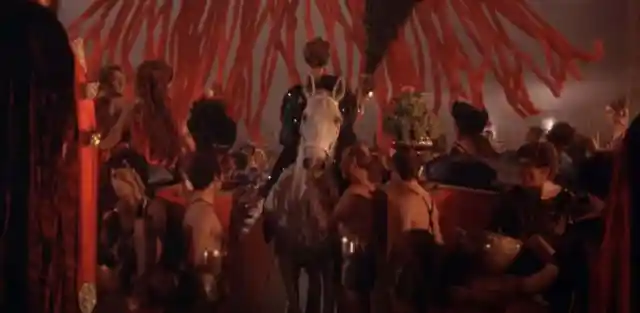
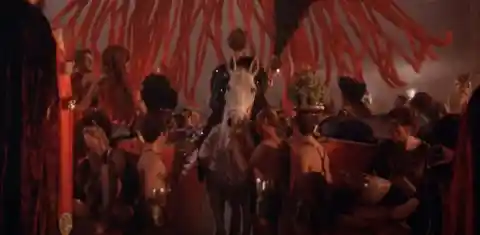
42. A Reason for His Madness
Nobody could figure out what was going on with Caligula’s mind. There were numerous historians, from the past as well as from the present who thought maybe they could crack the code. But with no results, they weren’t able to understand his motivation.
Though there were multiple theories behind his motivations. Some guess he had a mental disorder that nobody was aware of. Whereas some think he experienced epilepsy. Suetonius referred to his condition as “falling sick.” There was and has been no evidence that could prove their theory right.
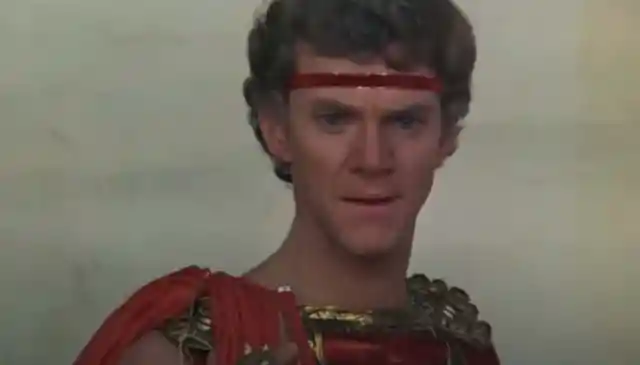
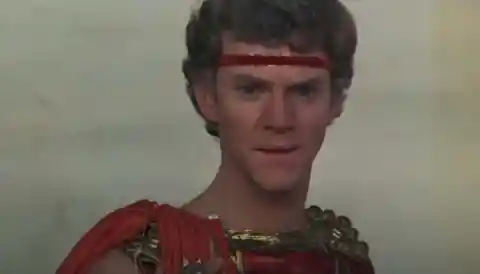
43. Fear Leads to Cruelty
According to some writers Caligula was frightened and cruel because he was always afraid he would have a seizure. Multiple sources verified Caligula's disability to swim. Whenever he found water he would get nervous or frightened. He was worried that if his enemies knew his weakness they might use it as a weapon to kill him.
To overcome this weak point he decided to get swimming classes. He even made this as a part of his formal education. He might have done this out of fear that he would drown in the water during a seizure. He was very confident after that.


44. Maybe He was Overcompensating
According to the resources we have got, we found that Caligula wasn't a powerful character. He only ill-treated people and misbehaved with them. He didn’t even look good. His appearance was not very attractive. Authors describe him as being thin-haired, hollow-eyed, pale, and sickly.
It also appears that he experienced "faintness" throughout his life or times when he was unable to put in nearly any effort. He was weak by body and mind. If he was asked to fight or make a decision he could take the help of his officials and if he didn’t like their decision he could fire them or sentence them to death.
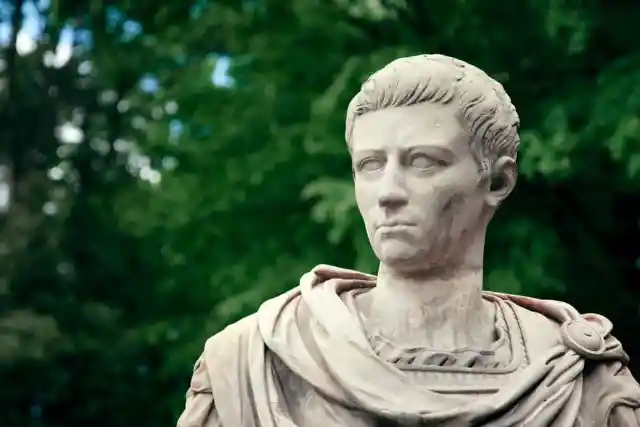
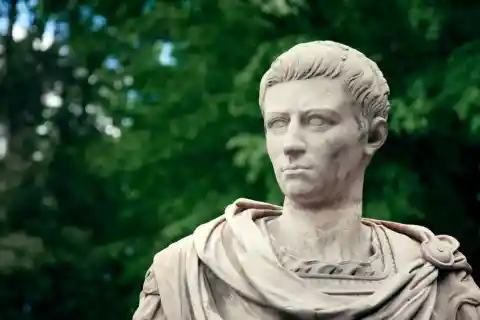
45. Who’s the Mightiest of Them All?
Caligula hated his nickname even as an adult, so he did what any trustworthy emperor would have done: he made up a new one. He didn't exactly make a humble decision, as you can imagine. Taking the name of the Roman King of the Gods, Jupiter, he forced senators to address him as such.
He created a temple for himself, called himself a god, and dressed like a god the emperor was protesting too much. That was going extreme. Who would compare oneself to god? But Caligula was one of them.
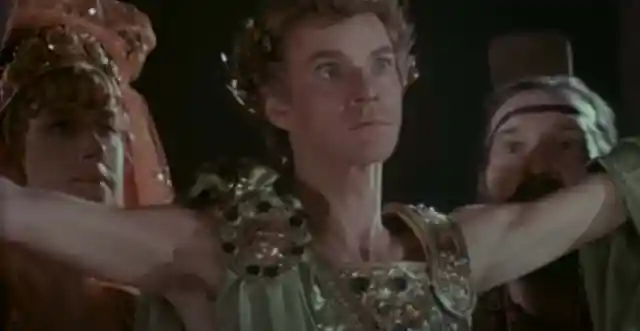
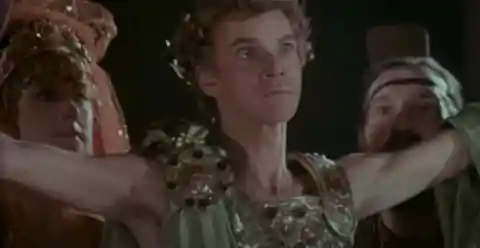
46. Who Wore it Better?
In yet another well-known tale of Caligula's anxiety, he reportedly asked a passing actor who was more powerful—the god or himself—when standing next to a statue of Jupiter. The man took a while to consider the proper response, which was not the right one. Talk about being caught between a rock and a hard place.
The way Caligula answered was just terrifying. He became furious and gave him a severe punishment. maybe a little self-conscious? He did not like anyone rejecting his opinion or disobeying him. He would get furious if anyone would dare to do that.
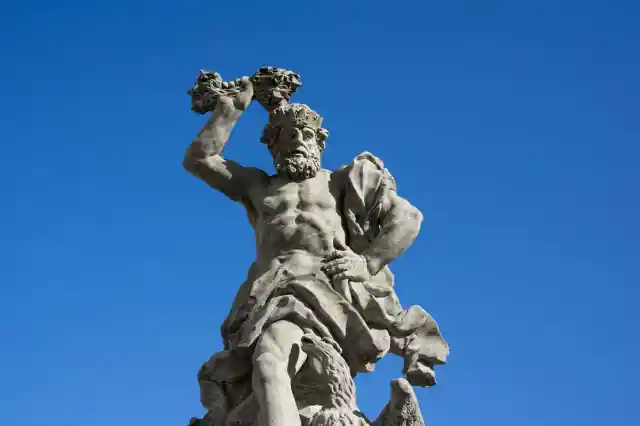
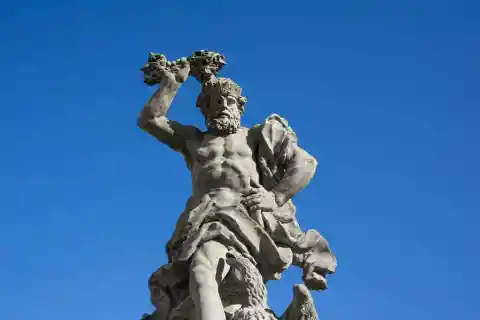
47. Public Humiliation
Approximately halfway through his rule, Caligula violated with the senators and began abusing every chance to humiliate them. Historians claim that he replaced and dismissed every ambassador without seeking the Senate's consent in approximately 39 AD.
It is also reported that he would make senators run beside his chariot while they were fully clothed. He would ultimately have to pay the highest price for making everyone around him painful, but for now, he laughed at it.


48. Playing Dressup
The most luxurious clothing that money could buy was always worn by Caligula. His particular favorites were silks and anything with detailed decorations, but he also had some unique tastes. He enjoyed dressing up as Neptune and Jupiter, as we previously mentioned, but that was only the start.
Additionally, he occasionally dressed as a woman or as one of the female gods, like Diana or Juno. He possessed a huge number of jewelry and a sizable collection of shoes, many of which were worn by women. Caligula thought that fashion was just fashion.
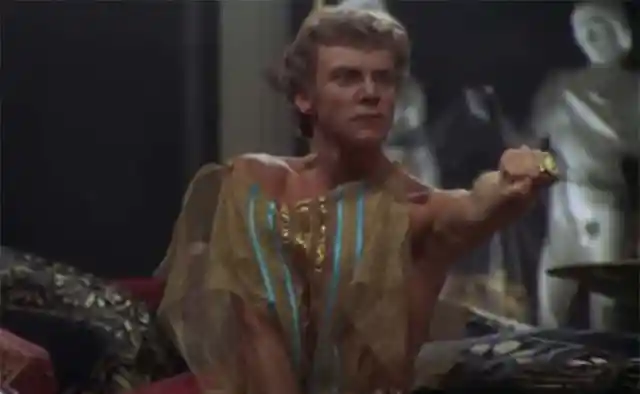
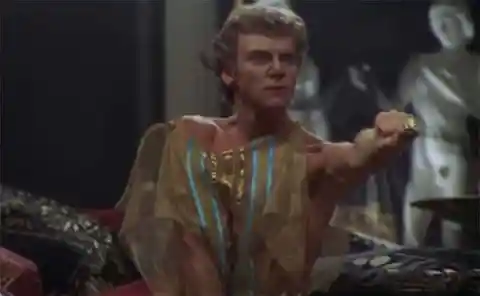
49. Caligula the Builder
Caligula was known for being cruel, but he also finished some important construction projects that Tiberius, his predecessor, had left unfinished. He started work on a tunnel to enhance Rome's water supply, finished building Pompey's theatre and the Temple of Augustus, and completed a spectacular theatre. In addition, he constructed a city in the Alps and restored the walls surrounding the Syracuse temples. However, these just became warm-ups for the ultimate goal.
The construction of a massive canal across Greece's Corinth Isthmus was Caligula's greatest ambition. Perhaps his reach exceeded his grasp because he even ordered an official Roman Army officer to investigate the location. In the days before technology, the project was never finished.
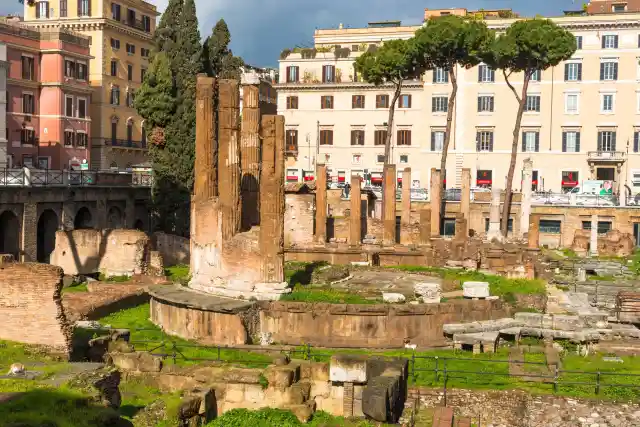
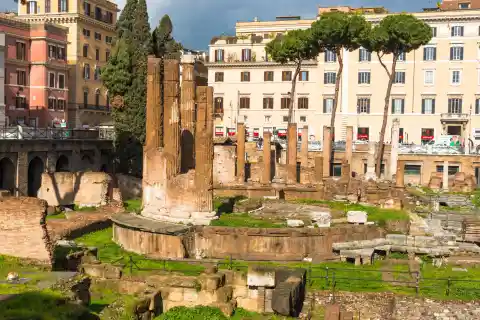
50. No One Was Safe When Caligula Was Around
The gladiatorial matches served Roman justice in addition to being a means of public display and increased political status. For entertainment, slaves and criminals were frequently sacrificed to aggressive animals, but apparently, that wasn't enough for someone as ruthless as Caligula.
To entertain himself he would do anything. He didn’t value the life of people. The emperor once ordered his guards to throw a large portion of the crowd to the beasts to make up for his felt absence of interest in the day's events.
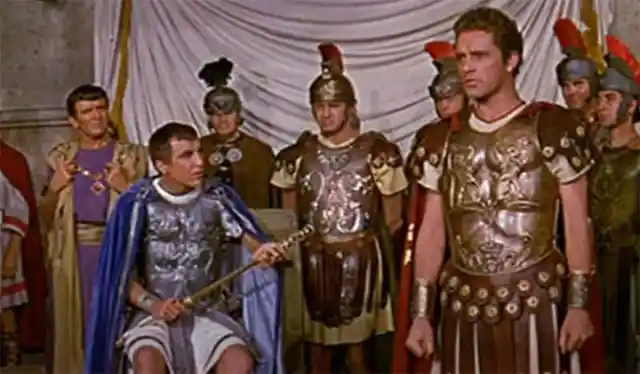
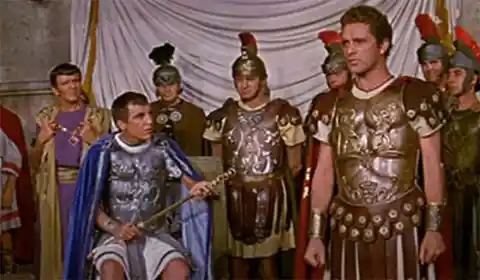
51. Show-Off
It appeared that Caligula was attracted to things other than ruling the empire. He was not a good king like his ancestors were. Other than ruling the empire he was interested in everything. One of his greatest loves was chariot racing, and he would take part in the races himself. He never misses any event related to the racing.
He occasionally even slept in the horse stables due to his obsession! He did not care about his family or the people of his kingdom. The only thing he loves is horses. Hey, that's a good thing, as long as he's not killing people on random occasions. People are relaxed when he is busy with his horses otherwise he would randomly pick anyone and sentence him to death for his entertainment.
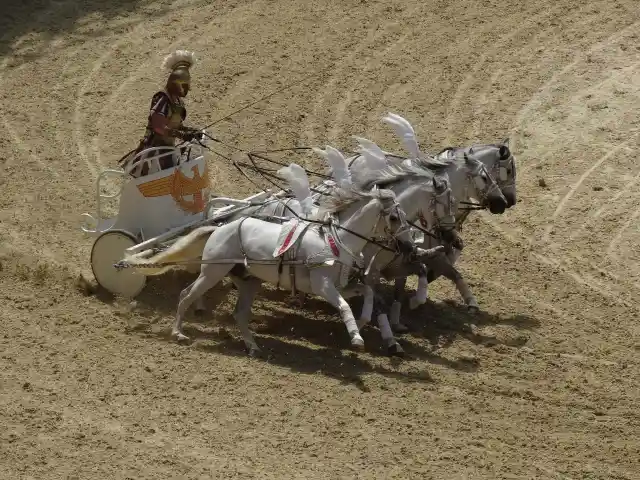
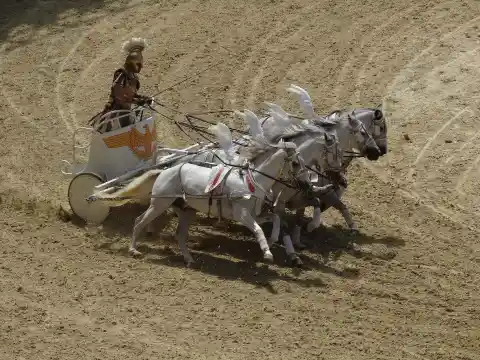
52. All the World's a Stage
It seems that Caligula also liked to perform and flaunt himself whenever she could. He was a crazy man. According to one story, he once gathered his Consuls to his room in the middle of the night and made them watch him dance and sing while wearing very little clothing. He included his officials in his crazy and evil deeds. They were also fed up of him.
He enjoyed joining the actors in song when he attended live performances. He had a little bit of opposite likes and dislikes. I enjoy nothing more than listening to the idiot sitting next to me sing at a performance rather than the skilled artists performing. He wanted to make fun of people and insult them in front of the whole public.


53. Who Needs to Be Liked?
Criticism of Caligula's acts grew as his actions became worse and cruel. He did not think of anyone’s emotions. He does the things he likes. He has no idea what other feels. If someone disobeys him or even if he didn’t like that person he sentence him to death.
He quickly climbed to the top of the empire's list of most hated individuals. He was the one people hated the most. And the interesting fact is he didn’t care about it much. Did this disturb the man who believed he was a god? Not at all; he just said, "Let them fear me, and hate me." this makes him determined for his work.
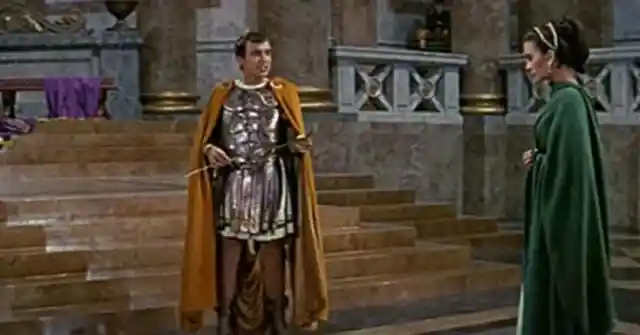
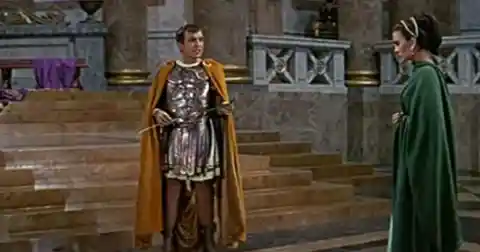
54. War With a Sea God
One of the most widely circulated myths about Caligula holds that, after being forced to call off the invasion of Britain, he once engaged in a fight with Neptune, the God of the Sea. According to the legend, he had to declare war on Neptune and give his soldiers orders to shake the waves to return to Rome without achieving some sort of victory.
He then ordered the men to gather seashells as evidence of war. He was such a coward that he didn’t want to tell his people that he lost the war. Even though stories of this event date back to years after Caligula's rule, is it that unlikely given what we know about him?
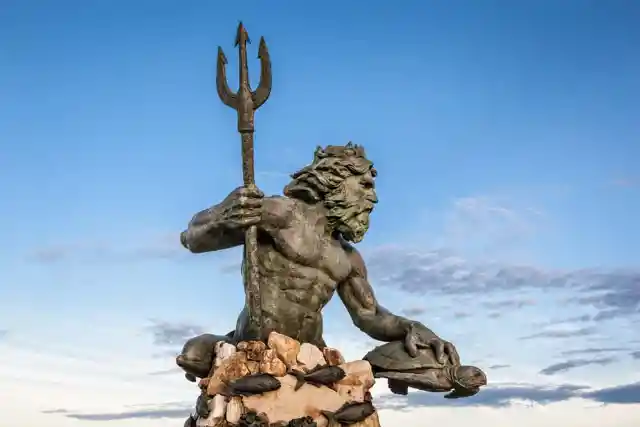
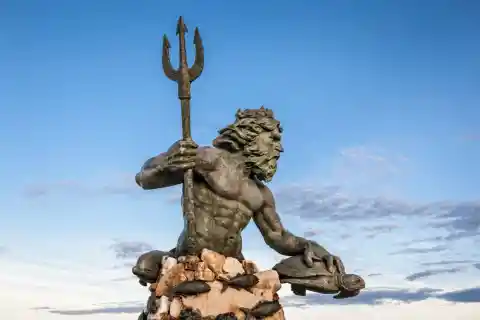
55. The Dagger and the Sword
He was very rude and a cruel king. He has always had something cooking in his mind. He has already planned what punishment he will give to entertain himself. It is said that Caligula always carried two notebooks with him. "The Dagger" was one, and "The Sword" was the other.
They included the names of people he wanted to put on trial, put in jail, or put to death. He had already planned everything. He didn’t miss any opportunity to humiliate people around him. His behavior toward his people was becoming terrible.


56. Biggest Fear
The biography by Suetonius claims that Caligula was completely terrified of lightning. Because the leaves on the crown of laurels came from a tree that was never struck by lightning, it is said that he wore it as protection against any fear.
Hey, I wonder if he would be interested in any of the tonnes of junk I have sitting around that hasn't been smashed by lightning.


57. Archaeological Discovery
What US and British archaeologists suppose to be the location of Caligula's palace was discovered in 2003. The remains were discovered next to the Temple of Castor and Pollux on Palatine Hill. When the archaeologists started digging out, they found something unexpected.
They discovered proof that the palace walls connected to the hallowed temple directly. It was highly taboo to do such a thing in those days, but Caligula considered himself to be a god anyhow, so I doubt it would have stopped him.
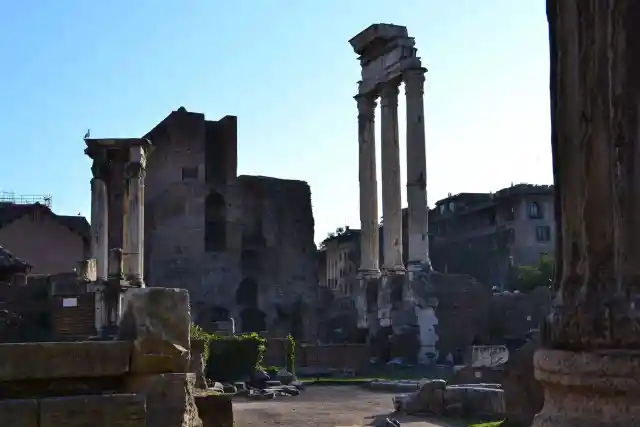
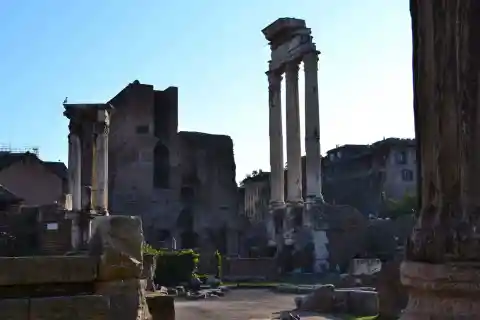
58. Pleasure Barges
Approximately nineteen miles south of Rome, on the volcanic Lake Nemi, Caligula spent plenty of money building two enormous ships. Historians still disagree somewhat about why he built them. According to one theory, he wanted to show the Egyptian leaders that Rome could match any luxurious ship they constructed.
Some believe that one was built as a floating temple dedicated to the goddess Diana, while the other was probably a floating palace built in the #yachtlife style for Caligula to take pleasure in his sins.


59. I Should Buy a Boat
The finest riverboat of its time was Caligula's biggest pleasure boat. Equipped with beautiful mosaics, plumbing, and heating, it stretched nearly 300 feet. The extent of the ship's advanced technology shocked the archaeologists upon discovering a shipwreck in 1932.
Most scholars believed that the Romans wouldn't create this technology until centuries later. But they kept everyone's mouth open after their discovery. All we can say is that Caligula was far ahead of his time in terms of luxuries. None other than Rome any country did not have this much luxury.
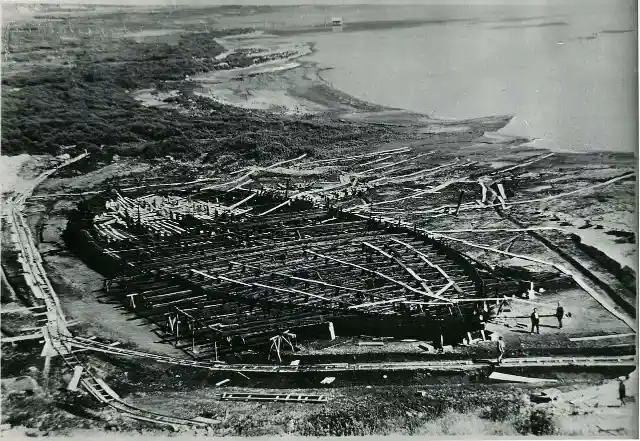
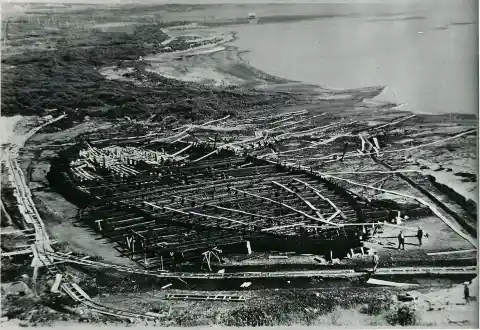
60. Sinking the Boats
Caligula's elegant Lake Nemi barges were stolen and drowned by the Senate and the Praetorian Guard on the day of his cruel murder. Many fishermen claimed in the years that followed to have seen the shape of the luxurious ships beneath the waves.
The sunken ships were known to the people of Lake Nemi for centuries, but it wasn't until the Mussolini period that a ridiculous scheme to find the ships for good was finally planned. Was something more cooking in Caligula's mind?
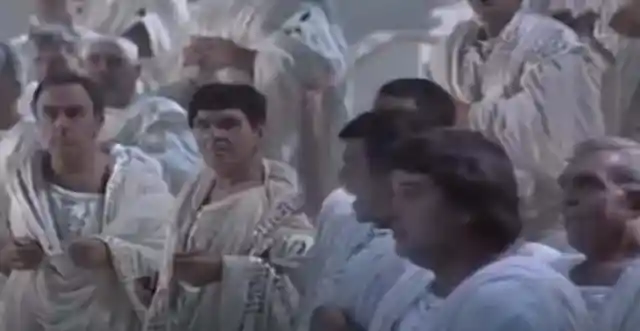
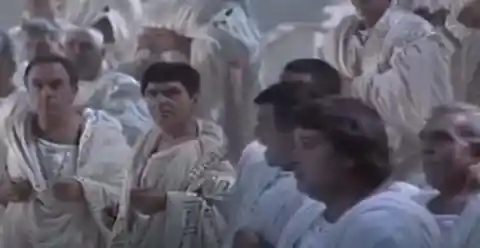
61. Nowhere to Hide
You know what there were super old ships that were lost underwater around two thousand years ago. Did you have any idea what our explorer did? They found all those ships that nobody could do. The ships that had been lost for nearly two thousand years were eventually located by explorers. They did a very good job and for this task, they emptied the lake.
The shapes of the ships that had remained on the ocean floor for centuries eventually became visible as the water level dropped. You might be wondering how did the ship look like, or did it hold any treasure in it. All this is still a mystery.
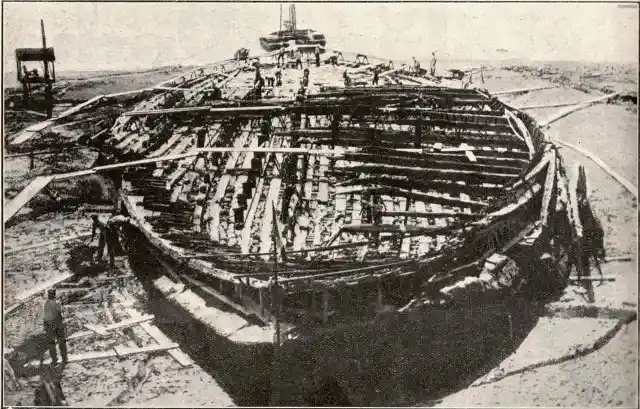
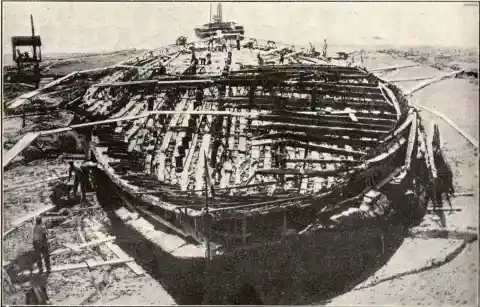
62. Into the Abyss
Imagine that a long time ago, before Mussolini ever made an appearance in history, there was a man by the name of Francesco De Marchi. In 1535, he pulled off extremely daring and cool acts. He took a special bell thingy to get to the bottom of Lake Nemi to look for those ancient ships. Visualize sinking yourself in a bell! It appears like an early look at the past.
Francesco was the very first person to get hands-on with the remains, even though Mussolini later took a strong interest in the ships. We are attracted by Francesco's underwater expedition and what he observed in that ancient aquatic world because of the story.
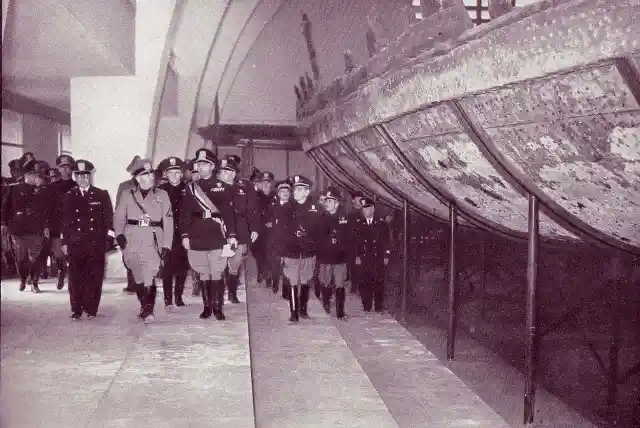
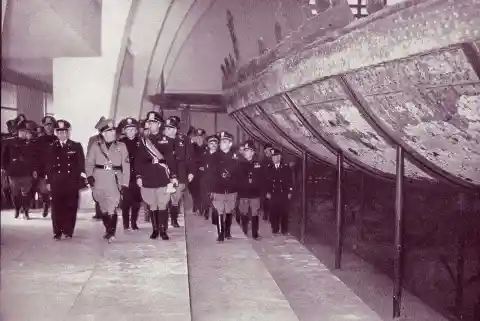
63. Old Technology
A canal that connected Lake Nemi to surrounding farms was constructed by the Romans in the past. Years later, engineers were somewhat unhappy but still had to reopen this old channel. Why? Draining the lake was necessary to reveal something truly unique: Caligula's ancient vessels! It's similar to reopening a historical waterway.
After all these years, the engineers put a lot of effort into bringing back this Roman drainage channel. As the water disappeared, there it was: Caligula's ancient vessels, long hidden but now appearing as a long-ago surprise.


64. Swear to Me, Swear to My Sisters!
Every Roman individual was required to take an official oath of devotion to Caligula and his sisters as well as to themselves (do you recall some of the gossip about old Little Boots and his sisters?). The oath read, "I will not value the safety of Emperor Gaius and his sisters less highly than I value my life or the lives of my children."
The Senate voted to grant Emperor Gaius and his sister's good fortune. The chances of those rumors seem to be increasing.
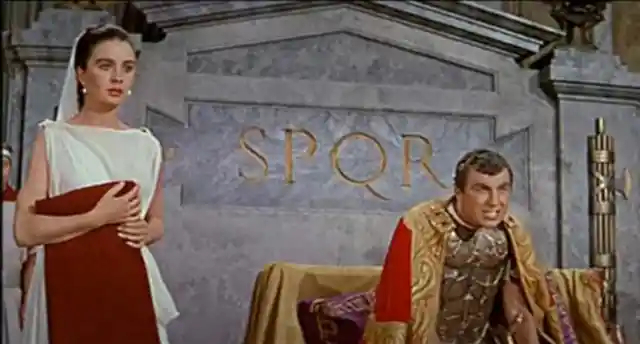
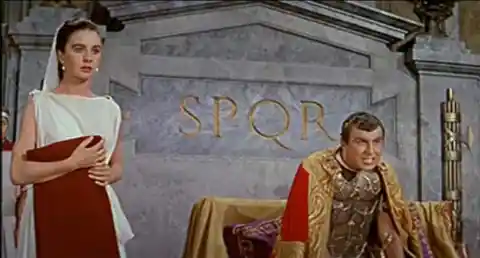
65. Chatting With the Gods
Caligula was said to have talked with gods in addition to his desire to be one. There were rumors that he invited the moon to his bed and conversed with her at night. He also claimed that the spirit of the ocean spoke to him when he couldn't sleep, and he was reported to speak directly to Jupiter, at times attacking him directly.
This seems like a completely typical action for the most powerful individual on the planet. His cruel actions make us think of his upcoming plans. He could go far beyond in order to accomplish his goal.


66. A Storm's Brewing
What do you think? People in Rome began to notice that Caligula was acting in a very cruel and alarming manner. The government was beginning to lose more and more support for him. The shocking twist, though, is that Caligula went too far in the year 40 AD.
He stepped over a line that he ought not to have crossed, horribly covering his own defeat. It seems like he exceeded, and things suffered. The narrative leaves us wondering as to what Caligula did wrong and how this last action brought down a king whose acts had already caused a great deal of trouble.
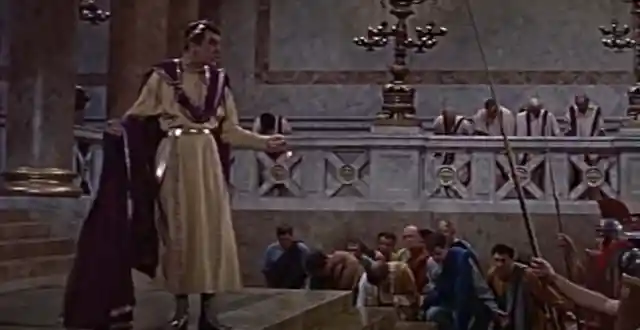
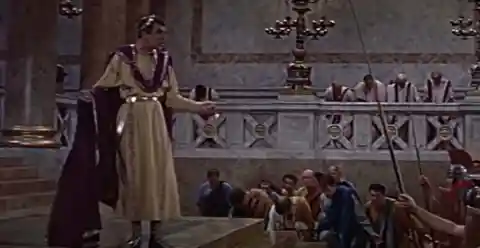
67. You Only Move Once
Following a series of harsh actions and costly expenses Caligula made an unexpected decision that resulted in significant problems. How did he act? He decided to leave his home. Moving might not seem like a big deal, but history could have turned out very differently if Caligula had stayed put.
His schemes were revolutionary! Similar to the domino effect, everything changes with just one move. The narrative leaves us seeking information about the specifics of his strategies and how this easy decision to make a change had such an important impact, laying the foundations for the unexpected turns that took place.


68. Anything to be Worshipped
No matter how hard Caligula tried, most people would only ever see him as an emperor, even though he considered himself to be a god. But in Egypt, just across the Mediterranean, people had been worshipping their rulers as gods for thousands of years.
That was too good an idea to refuse, especially for a megalomaniacal like Caligula. He started preparing to move to the capital, Alexandria, permanently in 40 AD.
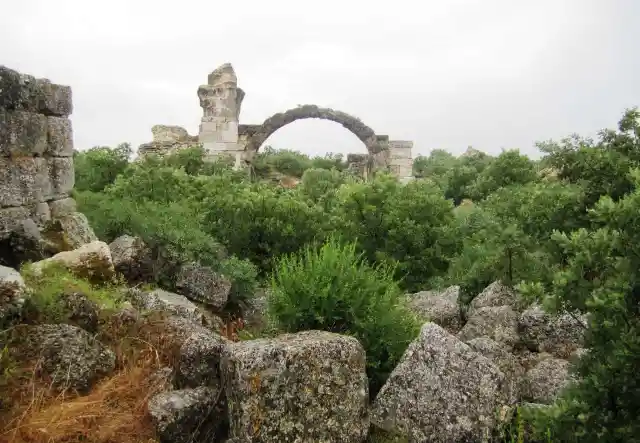

69. Time to Put an End to This
A lot of Rome's powerful individuals found Caligula's plan to be their patience. Rome and its residents would lose their power in politics if he shifted to Alexandria. Both the Senate and the Praetorian Guard would become entirely useless as a result.
One of Caligula's security officers, Cassius Chaerea, realized this better than anyone, so he built a clever plan to finally put a stop to Caligula's absurdity.


70. He Crossed the Wrong Guy
What do you think? Chaerea had a personal grudge against the emperor in addition to some political objectives. He wasn't exactly treated well by Caligula, who frequently made fun of his weak voice and called him harshly in front of everyone. Imagine having the boss make fun of you! That is what happened that occurred to Chaerea.
Chaerea was one of the many people in Rome who didn't think the best of Caligula. But here's the thing, it was an awful decision to cross paths with Caligula. The narrative leaves us wondering what exactly Caligula did to annoy Chaerea and how this individual anger combined with calculated political moves resulted in that unplanned attack.


71. Knives Out
One day, on January 22, 41 AD, Caligula experienced something unbelievable. He was casually conversing with a group of young actors just below his luxurious palace when Chaerea and a few others appeared out of nowhere. They seemed to just pop up out of nowhere! Caligula was completely confused. Then, out of nowhere, violence resulted.
Chaerea stepped up and began an attack. You won't believe what followed, either: the populace began to turn against Caligula! He was immediately cut down by them with extreme harshness. This is a startling chapter in history that seeks the questions of why Chaerea took this action and what promoted the crowd to act so violently regarding their emperor.
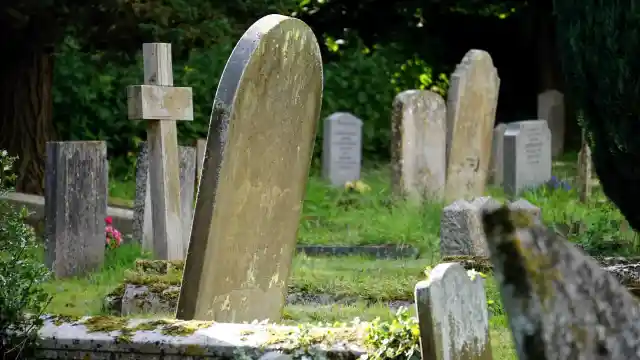

72. Beware the Ides of...January
You know what's interesting? The life of Caligula, whose true name is Gaius Julius Caesar, ended somewhat like that of his ancestor. Each of them suffered from numerous knife wounds—thirty, to be exact! It occurred as a result of a map against them by a group of individuals headed by a man called Cassius. Is it true?
Both rulers, carrying the same family name—Julius Caesar—were wounded multiple times by a group with less-than-pleasant plans. It resembles history oddly repeating itself. The narrative sparks our interest in these plots and the reasons behind Cassius and his gang's extreme measures against two leaders who share the same family.
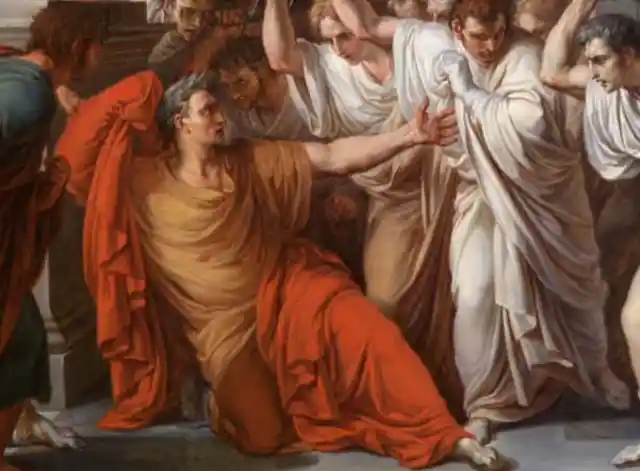
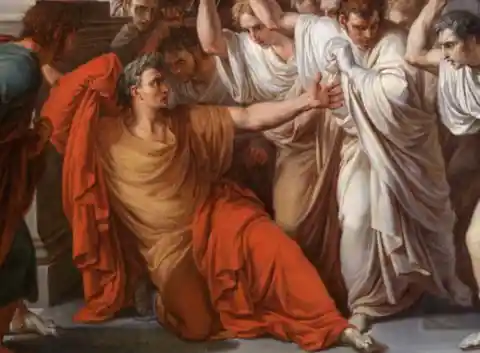
73. Rampage
Even after the Praetorian Guard compromised Caligula, his Germanic Guard remained strongly committed to him until the very end. The emperor was already dead when they arrived, but it didn't stop them from taking their aggressive punishment. They assaulted everyone in their surrounding area, whether or not they were conspirators.
It seems as though they were trying to make sure that nobody avoided feeling without punishment. We are left wondering about the story of the Germanic Guard's loyalty and what drove them to continue displaying their strong loyalty even after Caligula had died.
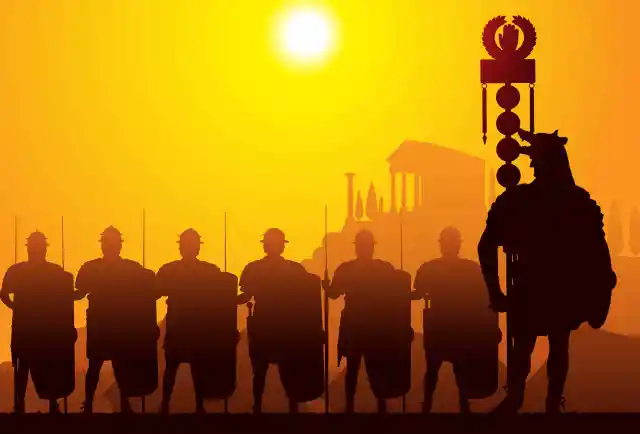
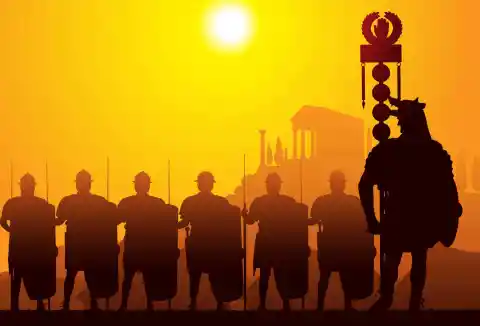
74. Haunted Halls
The death of Caligula was a great mystery for everyone. You know what our archeologist found something that nobody expected. The historians were very excited to find out where the murder took place. This story leaves us wanting to know more details.
The archaeologists mentioned that in 2008, they were successful in finding the exact corridor in Caligula’s luxurious palace where the murder was done. After this successful mission, the archeologist was eager to reveal it to the public. Was it like a murder mystery?
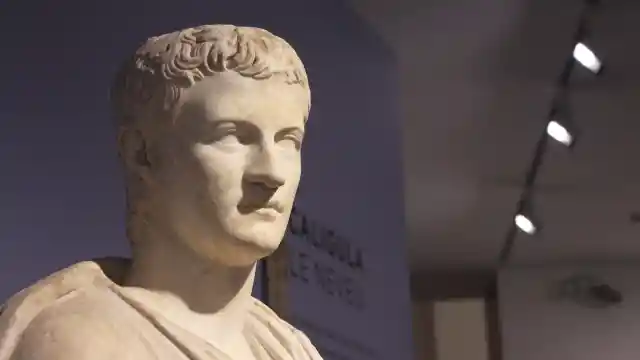
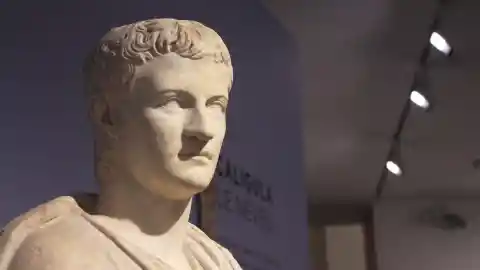
75. A Lannister Always Pays His Debts
The saddest part of history is that those who put an end to Caligula began searching for his wife and small daughter after he was gone. They desired to destroy every record of Caligula's ancestry. It resembles eliminating our memories. The next thing they did was terrible. They claim to have murdered Caligula's young daughter, Julia Drusilla, in an incredibly horrific manner.
Her tiny head was crushed against one of the walls. Even renowned writer George R.R. Martin could consider this moment of horrific violence to be severe. We are left feeling sorrowful by the tale, considering the terrible destiny of a young child attached to Caligula's outcome.


76. They'll Never Find Me
Now the conspirators wanted someone who knew Caligua very well. they then searched for Claudius, Caligula's ill uncle. Since Claudius was not the best fighter, he chose to hide behind a curtain after his nephew was killed.
Fortunately, he was discovered by a kind soldier, and he was soon taken to safety outside the city by a section of the Royal Guard. Not everyone was as cruel as Caligula. Claudius was very frightened after his nephew’s death. But he was not killed but rather moved to a safe place.
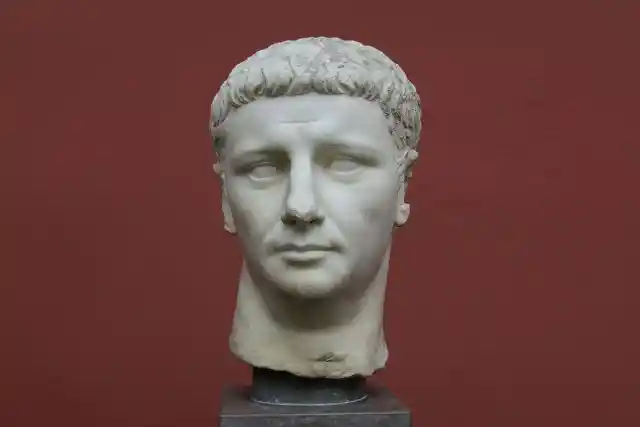
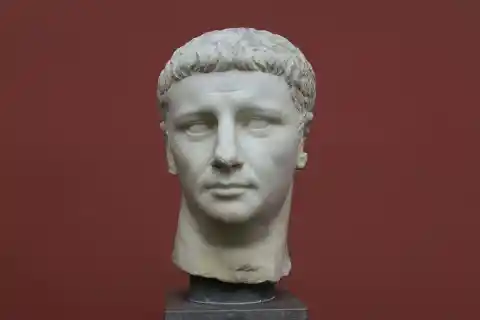
77. The Return of the Republic
The Roman Empire would have ended with Caligula's devastating end if the Senate had its way. To their honor, his rule had served as an adequate example of why it might not be the best idea to give one man absolute power. Nobody wants him to be the ruler anymore.
Everyone was fed up with his wicked games. As soon as he died everyone took the releif breath. There was one major issue that the senators ignored as they set out to restore the Roman Republic.
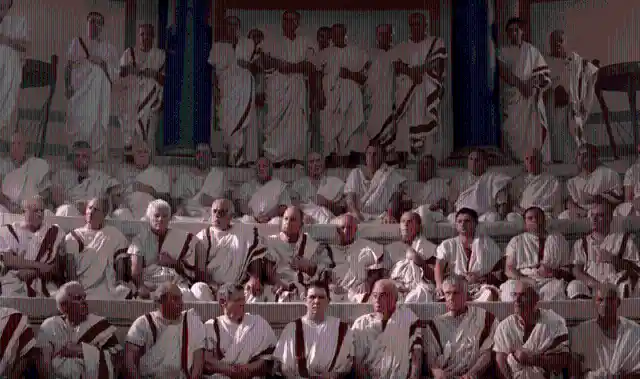

78. The More Things Change...
Cauligula was the worst king that anyone could dream of. He did whatever he wanted. His military was afraid of him. They knew that as an emperor, Caligula was an absolute disaster. The Roman military continued to find the concept of an empire fascinating. No one wants him to be the ruler anymore.
Calusids who was Caligua’s weak uncle also got fed up with him. Claudius was embraced by them and designated the new emperor. Without more delay, Claudius put to death the men who had murdered his nephew, and the Empire carried on, at last free of its most insane leader.
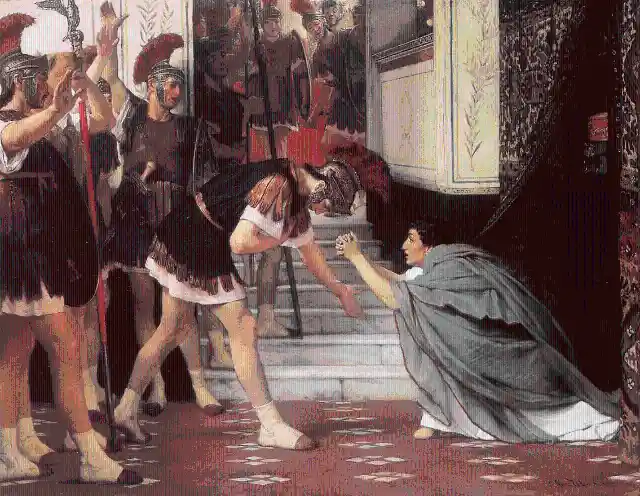
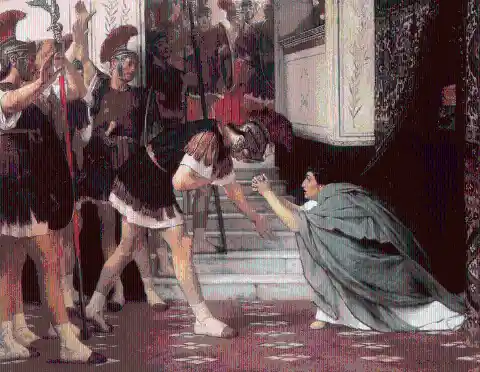
79. Disturbing Joke
Caligula possessed a clever sense of humor. He always thinks of himself and does the things he likes. He never cared about the people around him. He laughed uncontrollably once at a dinner party. Everyone was shocked at his behavior. He couldn't see that everyone was looking at him but he didn’t stop laughing.
He replied "I've just thought that I've got to give the word and you'll all have your necks cut," when asked to explain his laughter. Funny, huh? At this point, people could only have the choice to tolerate his behavior and do nothing.


80. Erased From History
In Roman history, Caligula was listed among the worst kings of Rome. He was not liked by any of the people in Rome. Caligula was so disliked by the Senate by the time of his death that they were pushing for his removal from Roman history.
They had his statues and public writings destroyed, and his coins were taken out of distribution and melted down wherever they could. They don’t want his things to be kept. As he died they threw away or burnt all those things that belonged to him.
